
By: Annika Min
Directed Research in Bhutan
Directed Research in Bhutan: Farms, Roads, Trees, and Trash – with a Side of Milk Tea
As our semester draws to a close, the students of SFS Bhutan have been busier than ever conducting directed research (DR) under the guidance of our faculty. With upcoming presentations to government officials in the capital city of Thimphu, our students’ work has the potential to inform policies and projects in the Land of the Thunder Dragon – a place that has become home over the past three months, and to which they now have the opportunity to contribute through their studies with SFS. Along the way, they’ve been invited into locals’ homes for interviews and offered countless cups of milk tea, walked through fields and rice terraces, scrambled up hillsides, endured thorny bushes, cored trees, sampled soil, enjoyed their packed lunches with splendid views, explored villages in the Paro valley, and even had some fun!
Here’s an insight into what our students have been up to during DR:
Dr. Bob Beazley (Lecturer for Land Use and Natural Resource Conservation) is leading research on land management. Developing farming systems and the increasing presence of roads make the Paro Valley an exciting case study of an evolving landscape and society for the eight students in this group. They have been investigating farmers’ perceptions and use of sustainable land management practices, the impacts of roads on local farms and livelihoods, and how roadside vegetation could be an indicator of or influence on land degradation.
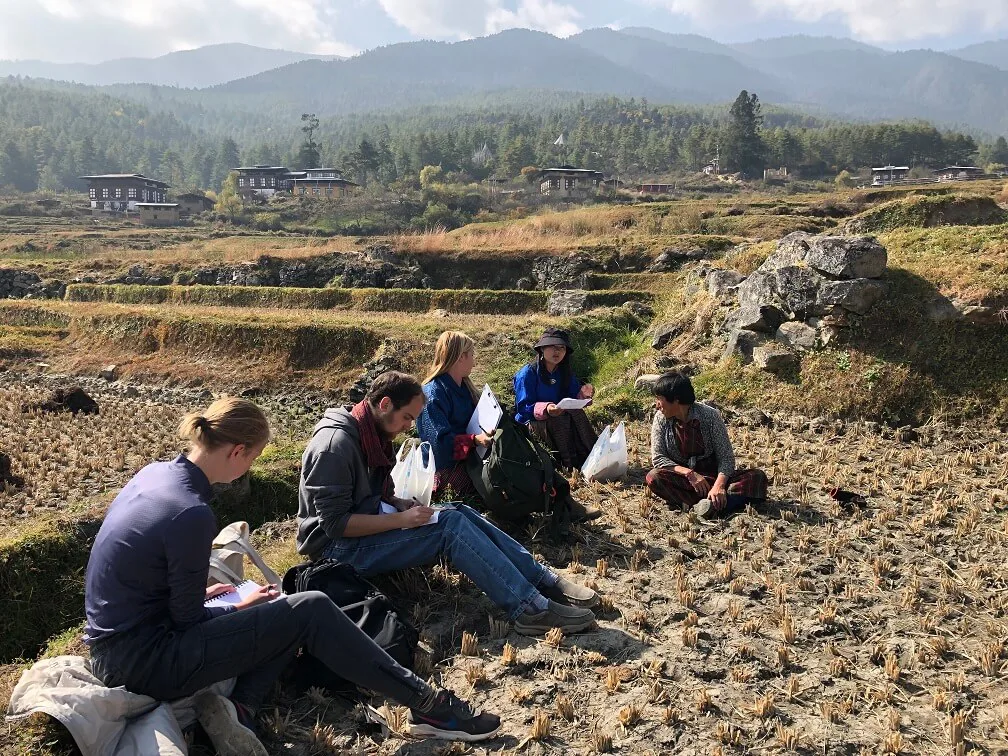
Dr. Kuenga Wangmo (Lecturer for Political, Social and Economic Dimensions of the Environment) is guiding nine students who have been investigating waste management in the Paro Valley. As Bhutan develops, local waste management systems and the amounts and types of waste produced are in flux. The students in this group have variously been conducting interviews and surveys on how locals perceive and dispose of waste, investigating the practice of burning trash, and studying the infrastructure and regulations surrounding waste management.
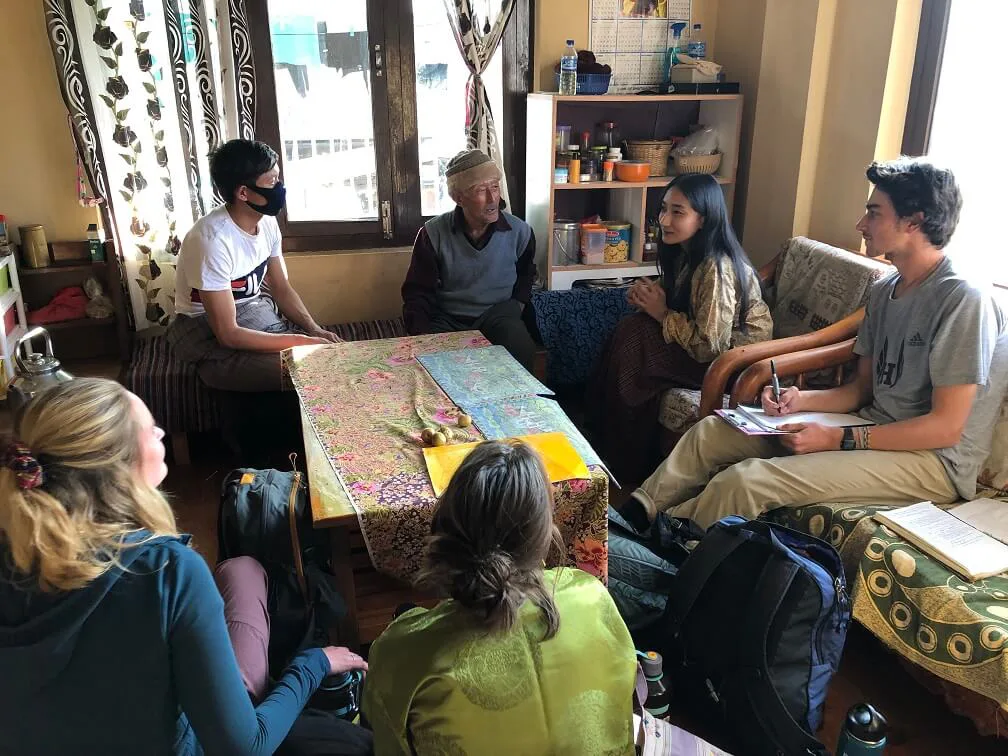
Meanwhile, Dr. Purna Chhetri (Lecturer for Mountain Ecology) is spearheading research on blue pine dieback. On hillslopes across this region of Bhutan, patches of forest have seen the needles of blue pine trees turn orange and brittle. Six students have spent their DR in forest plots exploring various factors contributing to this spreading ecological phenomenon; their hypothesis is that drought has weakened these trees, allowing different pathogens to infiltrate and ultimately kill them. By measuring, sampling, and coring blue pine trees in various stages of health, observing environmental factors such as soil composition and the presence of mistletoe, and examining patterns in climatic conditions, they hope to better understand the reasons behind the decline of blue pine stands.
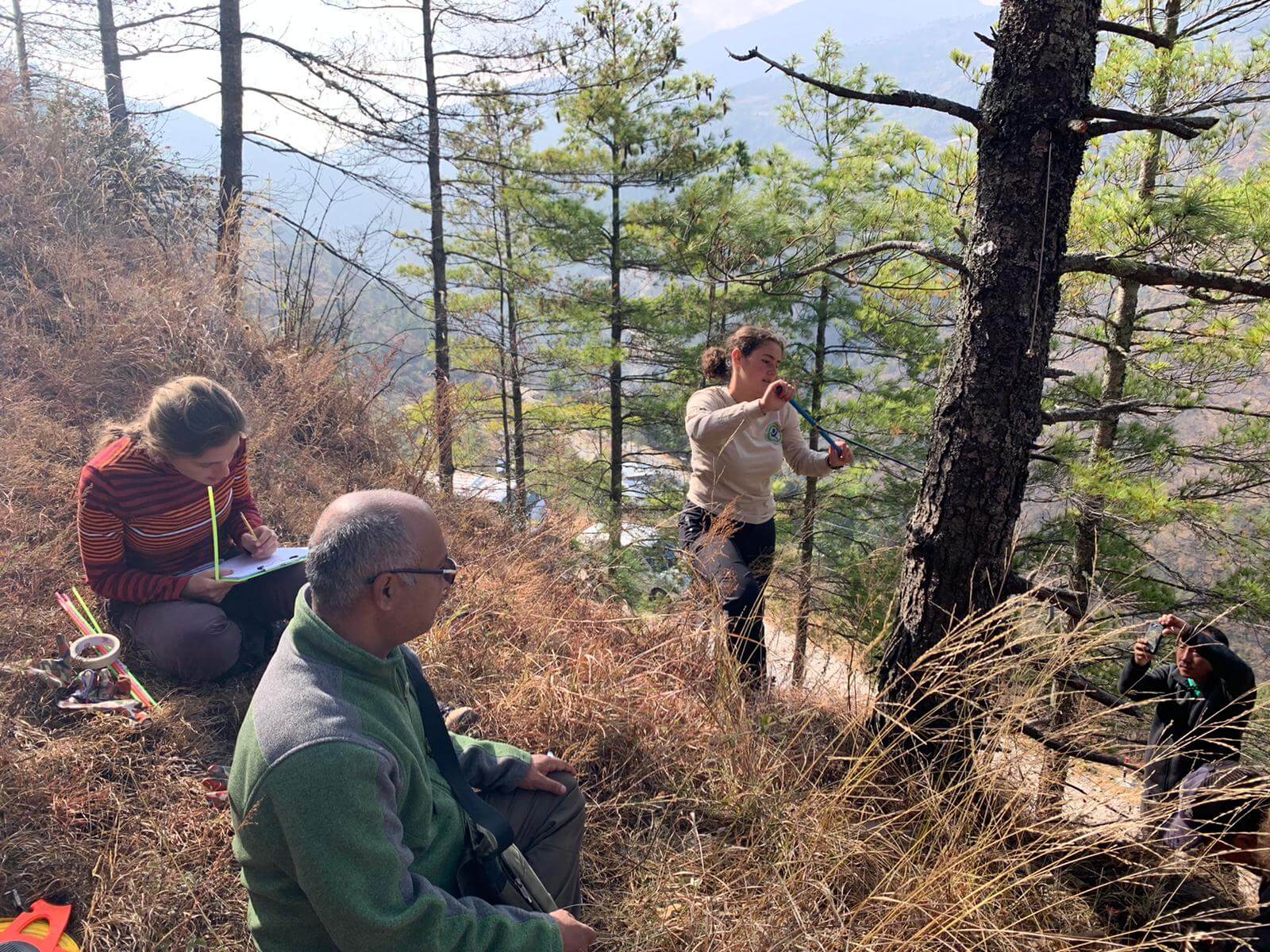
Of course, the reality of research is that it doesn’t end when the students come home from being in the field all day. They’ve been working hard revising their approaches, entering data, sanding tree cores, processing soil samples, and analyzing their findings. DR can be exhausting and sometimes frustrating, but it presents an incredible opportunity for the students to apply what they have learned here and experience Bhutan’s people and landscapes in new ways, with some well-deserved cups of milk tea along the way. As an SFS alumna myself (Peru 2014) and now as the Student Affairs Manager (SAM) for Bhutan, I can attest that the tremendous academic and personal growth thanks to this intensive experience – the SFS program as a whole and in particular directed research – makes it all worth it.
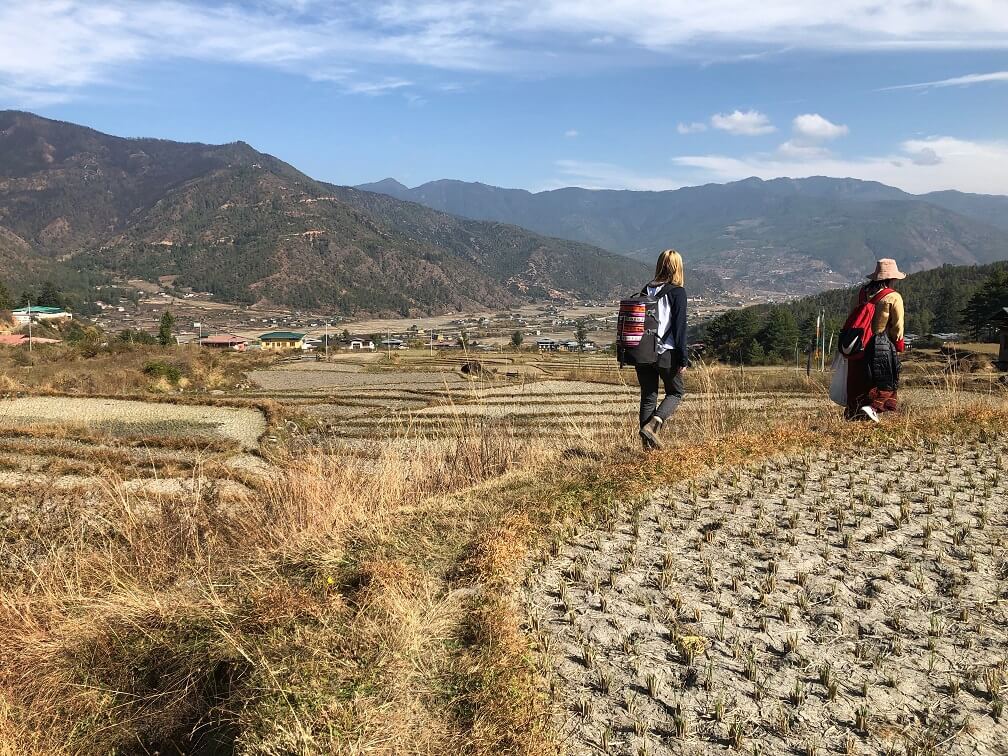
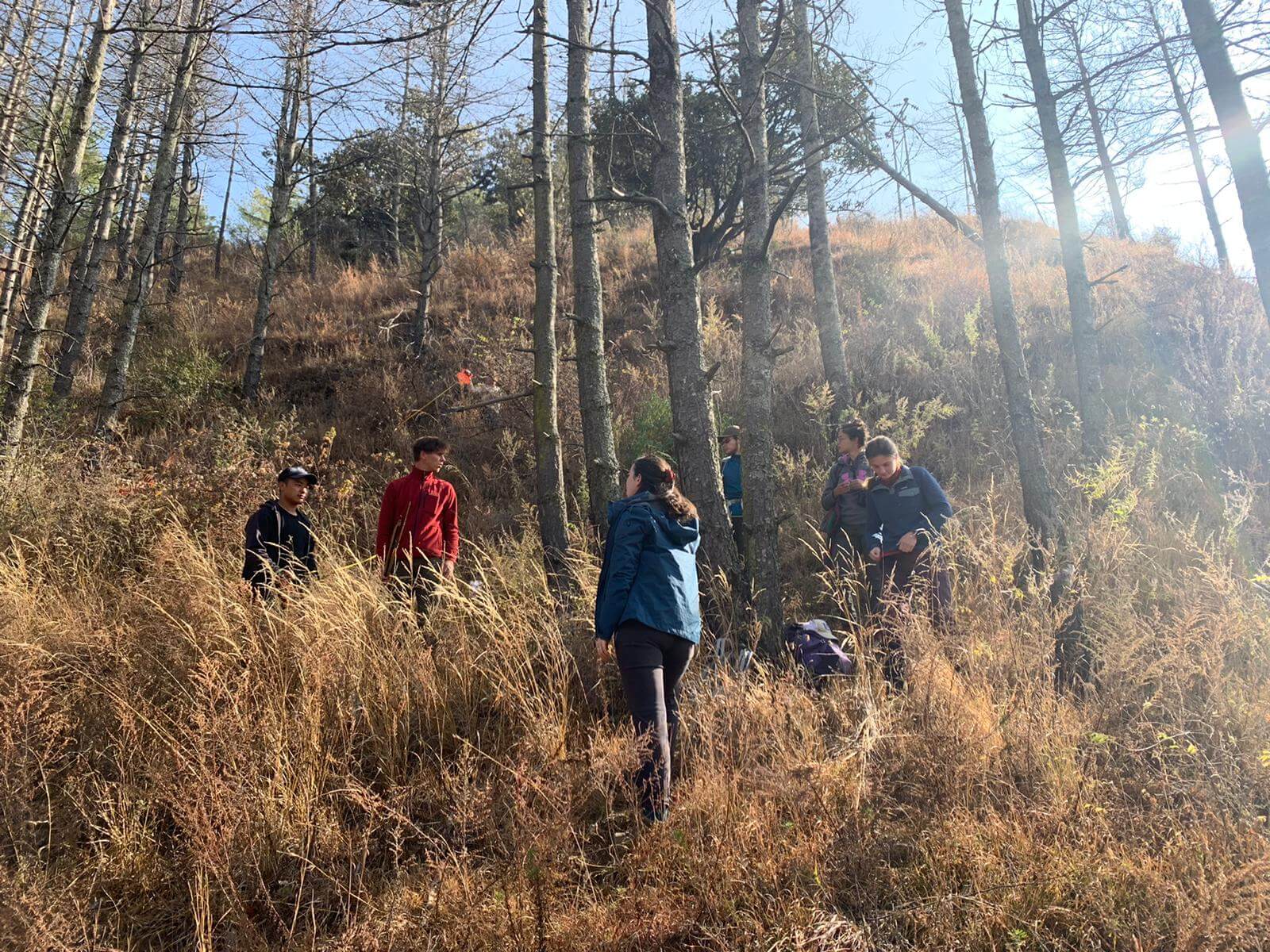
Related Posts
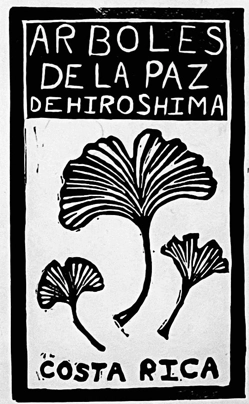
Trees of Peace from Hiroshima: A Time Traveler and Emissary of Hope
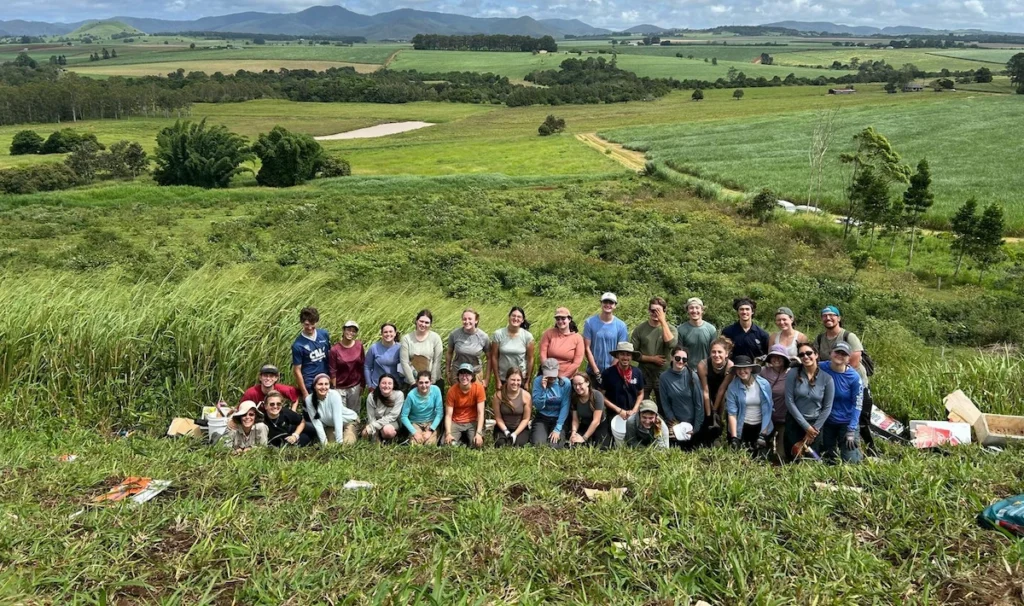
Cinder Cone Chronicles: Lessons from Drought, Data, and Determination
